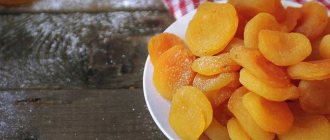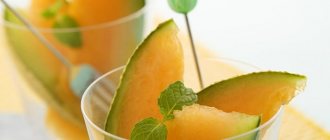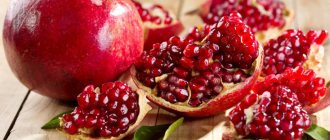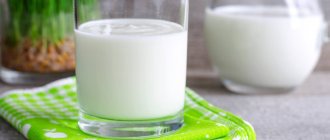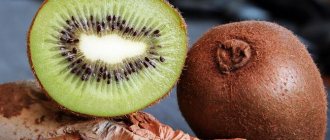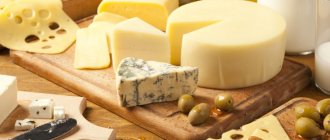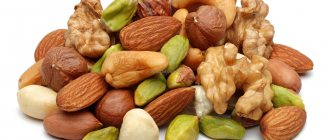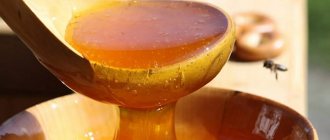Can a nursing mother eat sweets and which ones to choose?
Can a nursing mother have cow, Raffaello and others candies? Many young mothers ask this question. From this article you will learn what candies and in what quantity can be consumed by a nursing mother, and how to replace candies in the first month of breastfeeding without harm to yourself and the baby.
We’ll also tell you how to introduce this delicacy into the diet of a nursing woman. Nursing mothers often experience irresistible cravings for sweets. This is explained by the fact that women during breastfeeding spend a lot of energy on producing milk and caring for the baby. Sugar, being a source of fast carbohydrates, helps the body replenish energy reserves.
In addition, carbohydrates promote the production of serotonin, the happiness hormone. Therefore, after eating a piece of chocolate or candy, you feel a lift in mood. Those breastfeeding mothers who experience postpartum depression or lack of sleep are most drawn to sweets.
Try to get enough sleep with your baby during the day. The quantity and quality of breast milk depends on the emotional background and rest of the nursing mother. During the first month after giving birth, a nursing mother should limit sweets in her diet. It is prohibited to consume factory-made sweets.
The ban is due to the fact that the sweets contain chemical additives and substances that can cause allergies in infants. In addition, the large amount of carbohydrates contained in sweets puts a strong burden on the infant’s gastrointestinal tract, which is not yet fully formed. Sweeteners promote the production of insulin in excess in a healthy person.
This can have negative consequences for the health of a nursing woman in the form of diabetes. If the baby does not have allergies, then sweets should not be completely excluded from the diet of a nursing mother. It is best to eat sweets little by little so that you don’t have to break down, since this is more harmful for the mother than for the infant.
If it turns out that you have eaten too much candy, then feed the baby as usual, just watch the skin, stool and breathing. If the baby has an allergy, the pediatrician will prescribe symptomatic treatment and the suspected product will need to be limited or excluded for at least two weeks. When choosing sweets, pay attention to the composition, focus on naturalness. Homemade sweets without chemical additives in moderate quantities can be introduced into the diet of a nursing mother from the first month.
Doctors have differing opinions about these sweets. Most are sure that this delicacy can be included in the diet of a nursing woman when the baby is three months old.
Candy manufacturers may use chemical additives to reduce the cost of their goods. Therefore, homemade Korovka candies will be healthier than factory-made ones. The butter cow contains milk in large quantities, which can cause allergies in the baby. In case of lactase deficiency in an infant, these sweets should not be included in the diet of a nursing mother. When breastfeeding, introduce chocolate into your diet with caution, as the product is highly allergenic.
It is better to make the first samples of chocolates when the baby is six months old. Start with sweets without fillings, maybe with truffles, as they have a simple composition. Filled sweets contain many ingredients, which means that if an allergy occurs in a baby, it will be difficult to determine what exactly caused it. These bars contain not only natural ingredients, but also nutritional supplements. This product is high in calories, so people with diabetes and obesity should not eat it in large quantities.
Rot-Front bars contain peanuts, and they are one of the strong allergens and the consequences of an allergy to them are unpredictable. Therefore, before introducing these bars into the diet, it is recommended that a nursing mother find out if any of her relatives have a peanut allergy. In addition to peanuts, allergies can be caused by egg powder, soy flour, and milk, which are part of Rot-Front bars.
It is recommended to introduce these sweets into the diet of a nursing mother when the baby is four months old. Nursing mothers should choose caramels and toffees with natural ingredients.
You can eat these treats little by little 1 month after giving birth. If the baby does not have allergies and tolerates sweets normally, then the recommended daily intake is no more than 3 sweets.
Caramels with exotic fillings like mango and lime should be excluded from the diet of a nursing mother. They can cause allergies in infants.
Avoid caramels with coffee filling. Caffeine excites and overloads the nervous system, which will cause sleep disturbances in an infant. Chemical additives in these sweets will lead to intoxication and problems with stool in the form of diarrhea or constipation in an infant.
This delicacy should not be included in the diet of a nursing mother if the baby has been diagnosed with lactase deficiency. Read more about what sweets you can eat while breastfeeding on our website.
When choosing candies without chocolate, pay attention to the composition. The more E in the composition of preservatives, dyes and food additives, the later such a product should be introduced into the diet of a nursing woman, but not earlier than three months. Until six months of breastfeeding, avoid alcoholic sweets with liqueur and cognac.
These sweets contain neither liqueur nor cognac. This additive is obtained through a chemical reaction. These sweets can harm the fragile body of an infant. I started with one chocolate candy a day when my son turned 5 months old. After a month I could already eat 4-5 things a day. We are not allergic to chocolate. The doctor told me that sweets are not only possible, but also absolutely necessary for a nursing mother to eat. I have a strong craving for sweets. The baby was three months old, I ate a piece of chocolate for Christmas.
The child developed a terrible diathesis! Almost a month has not passed. You need to be careful when introducing sweets into a nursing woman's diet. Eat a small piece of candy in the morning. Monitor your baby's reaction to the new product. If within two days the child does not develop redness, colic or stool disturbance, then the next day you can slightly increase the amount eaten.
Dr. Komarovsky is confident that the choice of safe food products for a nursing mother is quite wide. However, you should give preference to proven food and not eat in large quantities anything that can cause allergies in your child. According to the doctor, it’s easier to deny yourself pleasure for a while, but don’t blame yourself for weakness if suddenly one day your baby is covered in a rash from head to toe.
Homemade sweets prepared according to the specified recipe will be much healthier than store-bought ones. They are free of harmful food additives and can be eaten from 3 months of breastfeeding. Did you like the article? Share with your friends:. You may also be interested. Mom's nutrition 0. In the search for foods that are allowed for nursing mothers, women often wonder whether greens can be eaten while breastfeeding.
Lovers of herbal teas are often looking for something to please themselves with breastfeeding, because there is practically nothing. Just as at first all women struggle to establish lactation, then they look for ways to complete it. Nursing mothers experience discomfort due to a lack of vitamins while breastfeeding, as the diet is very...
Problems with lactation often occur in breastfeeding women. Because of this, many people stop breastfeeding. When breastfeeding, a woman tries to adhere to proper nutrition so as not to harm the baby. Frequent appearance. Add a comment Cancel reply.
The benefits of candied fruits
The beneficial properties of candied fruits are directly related to the chemical composition of the fruits from which they were made. Candied fruits contain a considerable amount of useful vitamins and microelements. In addition, their structure is rich in plant fiber, which ensures harmonious digestion. The chemical composition of candied fruits is in no way inferior to fresh vegetables and fruits. And this, a kind of exotic delicacy, contains in abundance the following useful components:
In addition, these products contain proteins, carbohydrates and amino acids. Despite such a rich chemical composition, candied fruits made from various fruits are high in calories. A serving weighing 100 g contains up to 500 kcal. Breastfeeding women who have the problem of excess body weight should pay attention to calorie content.
The benefits of candied fruits are not as pronounced as compared to fresh fruits. Very often, medical experts recommend the use of candied fruits as part of a therapeutic or preventive diet. When talking about the benefits of this product for the body of a young mother, it is necessary to take into account the nature of the raw materials from which the candied fruits were made. Candied fruits made from fruits that have a high degree of allergic activity can cause unbearable harm to the body of a nursing mother and newborn baby. These fruits include:
- Citrus;
- Pineapples;
- Strawberry;
- Apples;
- Kiwi;
- Peaches.
The mentioned fruits contain highly allergenic chemical compounds, the entry of which into the body of a newborn child will lead to the formation of an allergic reaction.
If a nursing woman has been diagnosed with diabetes, then the use of this product is strictly contraindicated for her. In addition, this delicacy is not recommended for consumption by women who are overweight. When choosing candied fruits, pay attention to their appearance. Store-bought treats, which have an unnatural bright color and a synthetic odor, are a prohibited product for a nursing woman.
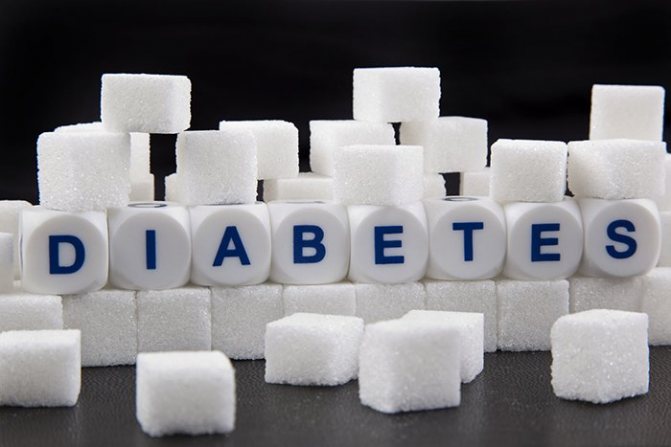
When making the product, manufacturers use a large number of artificial chemical additives, flavors, flavor enhancers and dyes. If a young mother wants to diversify her diet, then she can resort to making candied fruits herself.
I want something sweet :(((((
Almost all sweets, including candies, contain huge amounts of milk. These are the delicacies that young mothers can eat while breastfeeding. Of course, if the child is not allergic to nuts. It is worth remembering that some varieties of halva, as well as nougat, may contain a small amount of honey. You don’t have to give them up completely, but you won’t have to use them as often as you’d like. It is important to remember the rule: the treat should not contain honey or milk. It is better to buy sweets by weight. You can find out their composition from the seller. Of course, in this case we are talking about neutral products. Rule for breastfeeding: buy sweets without dye, as some substances have a detrimental effect on the baby’s health.
You can upload a picture from your computer to the text:. Mental development of a child at 4 years old.
Allowed desserts during breastfeeding
So, let's look at what sweets a nursing mother can eat. There is a list of products that are considered completely safe for consumption by both nursing mothers and newborns.
- Marshmallow. Approved product for all periods of breastfeeding. Of course, in this case we are talking only about natural marshmallows, preferably vanilla or homemade. You should not buy treats that are pink, yellow or other bright colors - this is the result of food dyes and synthetic substances.
- Kozinaki, halva. They can be eaten during lactation, provided there is no allergy to the seeds. The maximum permissible daily dose should not exceed 100 g.
- Candies: caramel, toffee “Korovka”, jelly sweets. You should not eat sweets that contain chocolate or cocoa.
- Jam. Great for tea; it is best to opt for homemade jams and preserves.
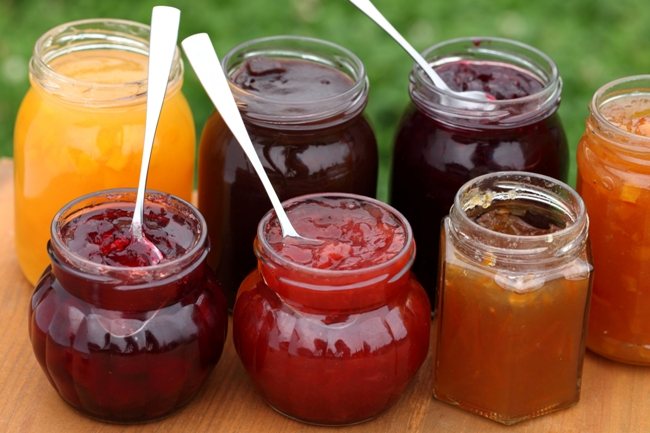
- Marmalade is one of the allowed desserts; it should not contain harmful dyes or flavors.
The question is, what else can a nursing woman do? You are allowed to pamper yourself with fruit and berry marshmallows, cookies, crackers, and raisin crackers. Candied fruits and dried fruits are also not prohibited.
A frequently asked question: is it okay to eat cake while breastfeeding? It should be noted that cakes are allowed during breastfeeding, but it is best to choose low-fat baked goods, such as cheesecake or sponge cake. Oatmeal cookies or baked goods such as biscuits or cookies intended for baby food are perfect.
When the baby is 2-3 months old, a nursing woman can treat herself to ice cream or condensed milk if the baby is not lactose intolerant.
When choosing ice cream, you should not choose products with coffee, chocolate or fruit fillings. As a rule, they contain a huge amount of preservatives and dyes.
You should also be extremely careful with condensed milk, as it contains a large amount of sugar. It is best for mothers during lactation to pamper themselves with desserts and pastries prepared with their own hands. Various cheesecakes with fruits and dried fruits, sour cream and curd cakes, meringues, low-fat cookies will perfectly decorate any tea party and bring a lot of pleasure.
Nutrition for a nursing mother - sweets
The vast majority of women during lactation experience an almost irresistible craving for sweets, a significant portion of which can be harmful to the health of the child. In this article, we will try to figure out whether sweets that are familiar to everyone from childhood are really safe and whether a mother who is breastfeeding can eat them. Of course, any mother who breastfeeds her baby is well aware that there should be very little sweets in her diet. It is quite obvious that foods containing large amounts of sugar and other fast carbohydrates are harmful to women. Excess sweets and baked goods, which she abuses, can lead to excess weight.
Breastfeeding makes strict adjustments to a mother’s diet—especially when it comes to sweets. What should we do for those who, even before pregnancy, had a great sweet tooth?
.
Allergy to candied fruits in a child
The immune system and gastrointestinal tract of any infant are imperfect. For this reason, there is a fairly high risk of developing an allergic reaction. In order to protect their babies, nursing mothers must remember certain dietary restrictions. Otherwise, it is almost impossible to predict the consequences.
The main reasons for the development of allergies:
- High content of allergens that can be dangerous for both the woman and her baby;
- Active use by manufacturers of flavors, dyes and other chemical components that can lead to the development of an allergic reaction.
In any case, it is advisable to take care to reduce the potential harm to the health of the young mother and her tiny baby. Moreover, women who breastfeed their children should remember that it is during lactation that the foundation is laid for the baby’s strong immunity. If you do not follow a diet during breastfeeding, there are risks of unwanted health problems and increased individual sensitivity to various foods. It is advisable to give up sweets and allergenic foods for a certain time so that the baby is not unduly influenced by food and can grow up healthy.
How to eat sweets correctly during lactation
Sweets are a must during breastfeeding. But you can’t use everything randomly. Sweets need to be introduced into the diet correctly.
Rules for introducing sweets into the diet:
- It is better to introduce the first sweets after the first month;
- You cannot try several products at once. Allowed only one at a time and in small quantities;
- Products with chemical additives should be completely avoided;
- You need to carefully monitor the baby's condition. If any changes occur, you should avoid this product for a while.
The most important rule is limited and gradual consumption of sweets. If you follow the recommendations of specialists and carefully monitor the baby’s reaction, then nothing will interfere with breastfeeding.

